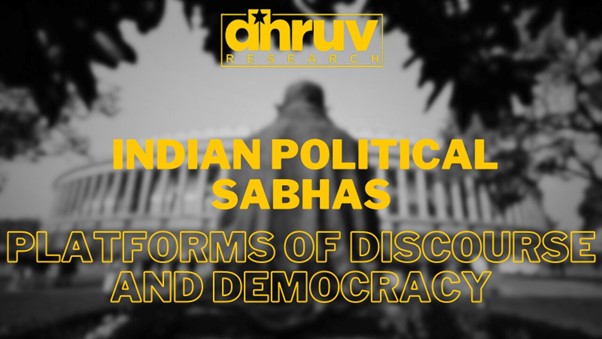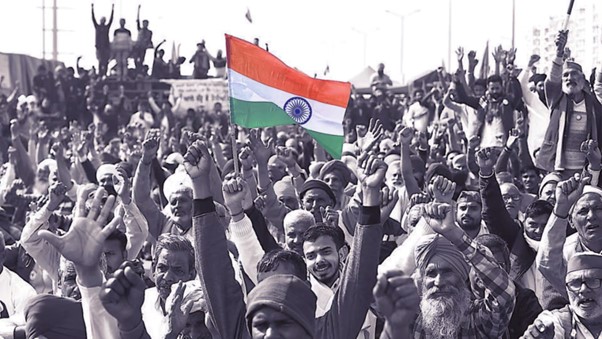
In the vast and intricate tapestry of Indian democracy, political sabhas stand as vibrant and dynamic forums where ideas, ideologies, and aspirations converge. These gatherings serve as crucial arenas for political discourse, debate, and the exchange of perspectives, playing a pivotal role in shaping the nation's political landscape. Rooted in the principles of democratic engagement and pluralism, Indian political sabhas have evolved over time to become essential platforms for citizen participation and governance.
The concept of political sabhas has deep historical roots, with its origins dating back to pre-independence India. During the struggle for freedom, public meetings and sabhas were instrumental in mobilizing masses, disseminating information, and fostering unity against colonial rule. Leaders like Mahatma Gandhi and Jawaharlal Nehru utilized these platforms to rally support for the freedom movement, underscoring the intrinsic connection between sabhas and the democratic ethos.
In contemporary India, political sabhas continue to be powerful tools for political parties and leaders to communicate their agendas, policies, and vision to the public. These gatherings range from massive rallies to local town hall meetings, each catering to a specific audience and purpose. Large-scale political rallies, often marked by charismatic speeches, vivid banners, and fervent crowds, create a spectacle that reflects the dynamism of Indian democracy. They provide a space for leaders to establish a direct connection with their constituents, fostering a sense of belonging and shared purpose.
Here are some examples of modern Indian political sabhas (public meetings or gatherings) that have had significant impact and influence:
Prime Minister Narendra Modi's monthly radio program, "Mann Ki Baat," is a platform where he addresses the nation, sharing his thoughts on various issues and themes. This initiative aims to establish a direct connection between the Prime Minister and the citizens, allowing them to express their ideas and concerns. It has become a popular communication tool to reach out to the masses and receive feedback.
Rahul Gandhi, a prominent leader of the Indian National Congress, has organised various "Kisan Sammelans" (farmers' gatherings) to address the concerns of farmers and discuss agricultural policies. These gatherings aimed to bring attention to the challenges faced by farmers and provide a platform for discussing solutions.
Arvind Kejriwal, the Chief Minister of Delhi and leader of the Aam Aadmi Party (AAP), had organised "Town Hall" meetings where he engaged with citizens and answered their questions. These interactive sessions allowed citizens to directly interact with the Chief Minister and voice their concerns.
Political parties in India often organise large-scale rallies as part of their election campaigns. These rallies feature prominent leaders addressing the public on various issues and party agendas. These events can attract massive crowds and play a crucial role in energising supporters.
The All India Trinamool Congress (TMC) held an annual Martyrs' Day rally on July 21st to commemorate the 1993 Kolkata firing incident. This rally served as a platform for TMC leaders, including Chief Minister Mamata Banerjee, to address their supporters and discuss party strategies.
The Bharatiya Janata Party (BJP) organises National Council meetings where party leaders and workers gather to discuss policy matters, review the party's performance, and set future goals. These meetings are essential for shaping the party's direction.
Although not exclusive to politics, International Yoga Day celebrations in India are significant events where political leaders participate to promote health and well-being. The Prime Minister often leads a mass yoga session, showcasing a commitment to wellness and fostering a sense of unity.
The Communist Party of India (Marxist) holds its Party Congress every few years. This event brings together party members from across the country to discuss ideological issues, organisational matters, and political strategies..
These political sabhas have played a crucial role in shaping public discourse, influencing policies, and mobilising support for various political parties and causes. They serve as platforms for leaders to connect with citizens, share their vision, and gather feedback. Additionally, these gatherings often receive extensive media coverage, amplifying their impact and reach. However, their effectiveness can vary depending on factors such as the scale of participation, the clarity of communication, and the resonance of the issues discussed.
A notable characteristic of modern political sabhas is their appeal to the younger generation. Political leaders recognize the importance of engaging youth in the democratic process and frequently organise youth-centric sabhas. These events aim to ignite political awareness, encourage active participation, and channel youthful energy towards constructive nation-building activities. Through interactive sessions, debates, and discussions, young participants are encouraged to voice their opinions and contribute to shaping the future of the nation.
Political sabhas also serve as platforms for healthy debates and discussions on pressing issues. They offer citizens an opportunity to express their concerns, question policymakers, and hold leaders accountable. Such dialogues help bridge the gap between governance and the governed, ensuring that policies are responsive to the needs of the people. In a diverse and complex country like India, political sabhas foster an inclusive atmosphere where a multitude of voices can be heard and considered.
While Indian political sabhas embody the spirit of democracy, they also face challenges. The increasing polarisation of political discourse, the influence of money and media, and the spread of misinformation pose obstacles to the authentic exchange of ideas. However, these challenges also present opportunities for innovation. With the advent of digital technology and social media, political leaders can leverage virtual sabhas to engage with a broader audience, transcending geographical limitations.
Indian political sabhas are not mere gatherings; they are the beating heart of a vibrant democracy. In these forums, ideologies clash, citizens engage, and leaders emerge. The evolution of political sabhas mirrors the evolution of Indian society itself, adapting to changing times while remaining rooted in democratic values. As India continues its journey towards progress and development, these sabhas will remain essential in upholding the spirit of participatory governance and fostering a collective vision for a stronger and more inclusive nation.
#IndianPolitics #PoliticalSabhas #DemocracyMatters #dhruvresearch


Dhruv Research owned by DHRUVA RESEARCH
Copyright © 2021
DHRUVA RESEARCH.
All rights reserved.